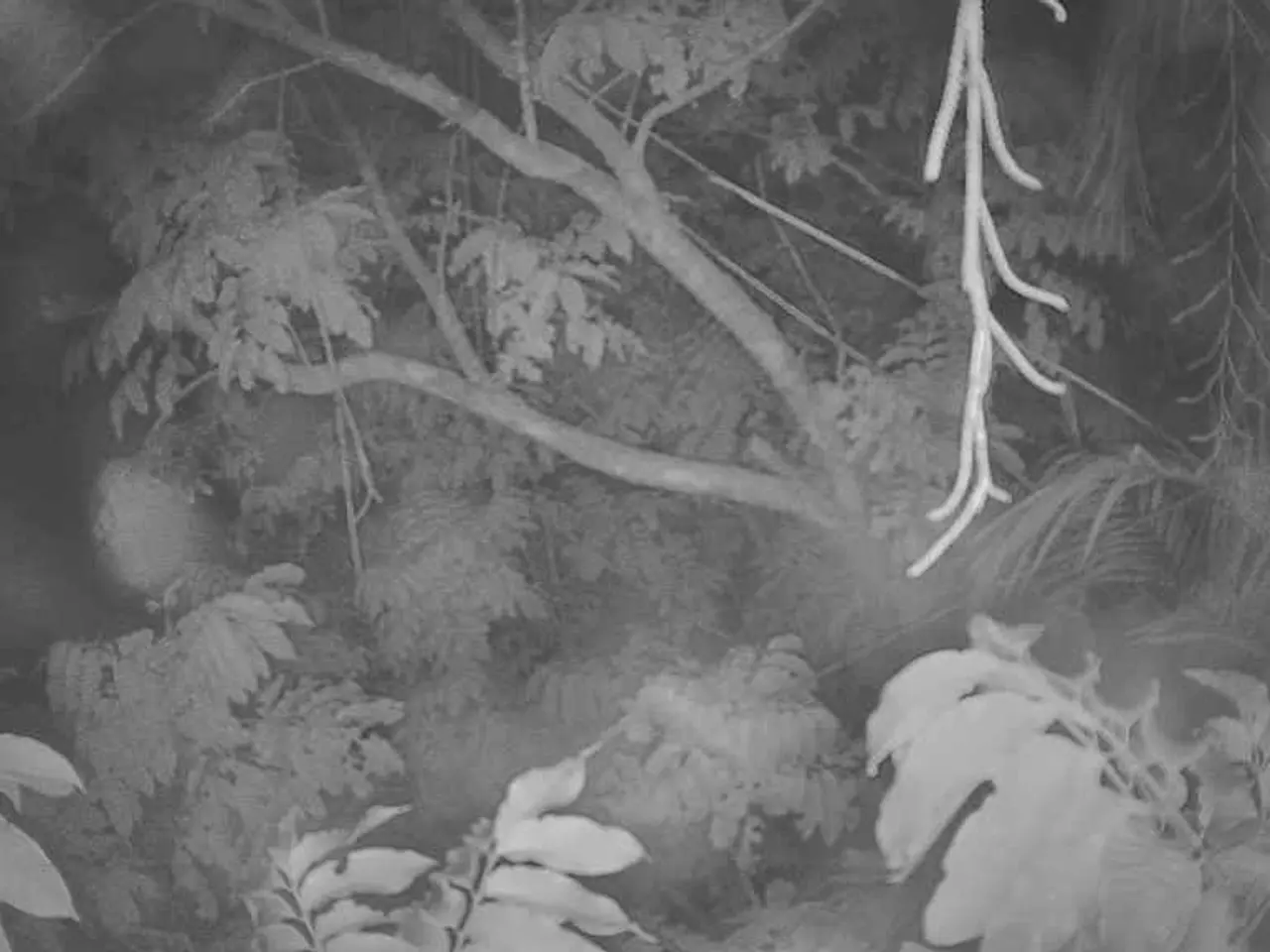Gardeners Issue Alerts: Certain Tree Species Pose More Harm Than Benefit
In the quest for a lush and vibrant garden, the right tree selection can make all the difference. When it comes to small gardens, choosing trees that are compact, non-invasive, and mindful of soil health is crucial to avoid future issues with water absorption, soil health, and plant competition.
Thuja, for instance, can serve as an alternative to Yew trees, offering a decorative touch while being low-maintenance. Meanwhile, Common Pine trees, known for their shallow roots that compete with other plants for nutrients and acidify the soil, are best avoided in favour of dwarf varieties like the Mugo Pine.
Wax Tree (Sumac) is a tree to consider for stabilizing slopes due to its aggressive root system. However, it produces abundant suckers and quickly colonizes entire areas, making it best used with caution. Silver Maple trees, on the other hand, are invasive, spreading rapidly by self-seeding and outcompeting native plants, making them best to avoid for preservation of local ecosystems.
Walnut trees, with their large size and dense shade, release juglone, which inhibits other plants' growth, making them suitable only for spacious areas. Yew trees, while decorative, have toxic berries, so care should be taken when choosing them.
When contemplating trees for a small garden, it's essential to consider their mature size, root system, and impact on soil. Birch trees, for example, have powerful roots that absorb water and nutrients, leaving little for other plants to grow beneath their canopy. They are best suited for large plots, while compact cultivars are more appropriate for small gardens.
Poplar trees, in addition to their large size, release allergenic pollen and pose a fire risk in dry weather. These factors make them less than ideal for small gardens.
For those seeking year-round structure and low water competition, conifers can be a good choice. Thuja occidentalis ‘Rheingold’, for example, is a slow-growing conifer with bright golden foliage, suitable for small gardens. Taxus baccata ‘Standishii’, with its columnar form and dense foliage, is another option that grows about 1m tall and tolerates some summer shade.
Some highly recommended broadleaf trees for small gardens include the Star Magnolia (Magnolia stellata), Eastern Redbud (Cercis canadensis), Paperbark Maple, and Royal Raindrops Crab Apple. Each of these trees offers unique characteristics that make them suitable for small spaces, from their compact growth habits to their tolerance of various soil types and conditions.
To maintain soil health and avoid water-related problems, it's important to plant trees in well-drained soils and avoid overly wet or compacted areas. Proper use of mulch around the base (2-4 inches thick, keeping a gap of 3 inches from the trunk) can help retain moisture without causing rot. Regular checks on soil moisture and appropriate watering are also key to keeping roots moist but avoiding waterlogging.
Avoiding trees with aggressive roots (e.g., weeping willow) that seek out water underground and may damage foundations or pipes is also essential.
In summary, select small, slow-to-moderate growth trees with non-invasive roots and moderate water demands, plant in well-drained soil, and follow good care practices to protect soil health and reduce competition in small garden spaces. With the right choices, your small garden can flourish year-round while maintaining a balance with the local ecosystem.
[1] Gardening Know How. (2021). Best Trees for Small Gardens. [online] Available at: https://www.gardeningknowhow.com/garden-how/trees/fruittrees/best-trees-for-small-gardens.htm
[2] The Spruce. (2021). The Best Trees for Small Gardens. [online] Available at: https://www.thespruce.com/best-trees-for-small-gardens-1412634
[3] The RHS. (2021). Choosing the right tree for your garden. [online] Available at: https://www.rhs.org.uk/advice/profile?PID=399
[4] The Oregon State University Extension Service. (2021). Mulch. [online] Available at: https://extension.oregonstate.edu/gardening/mulch
[5] The English Garden. (2021). 10 Small Trees for Your Garden. [online] Available at: https://www.theenglishgarden.co.uk/advice/10-small-trees-for-your-garden-115276/
[1] In the pursuit of an appealing home-and-garden lifestyle, gardeners with small spaces should focus on trees that are compact, non-invasive, and mindful of soil health to create a thriving and balanced garden that coexists harmoniously with the local ecosystem.
[2] To achieve a lush and diverse home-and-garden, gardeners can choose from a selection of low-maintenance trees such as Thuja, Star Magnolia, Eastern Redbud, Paperbark Maple, and Royal Raindrop Crab Apple, all of which are well-suited for small spaces due to their compact growth habits, tolerance to various soil types, and moderate water demands.




